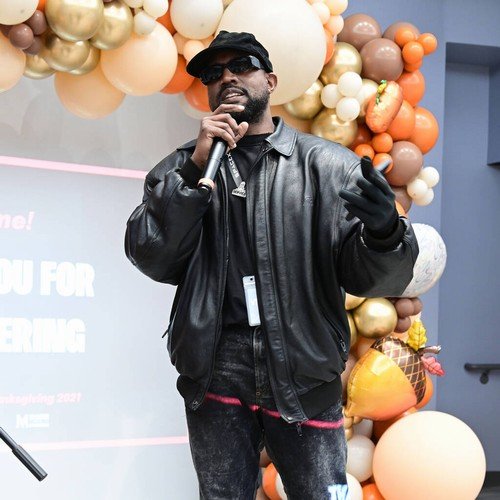Hakeem Jeffries (D-N.Y.), the soon-to-be House minority leader, has been telling his fellow Democratic lawmakers to think of the next two years this way: The White House is the client, House Democrats are the defense attorney. Indeed, the Biden administration has huddled a coterie of legal, legislative, and communications specialists to map out likely vectors of GOP oversight and will hire more into the effort. Ashley Etienne, who led House Democrats’ impeachment war room, has dispatched top protégés to communications posts at federal agencies Republicans have indicated they’re eager to interrogate: the Departments of Homeland Security (over border security), Health and Human Services (over COVID), and Education (over woke indoctrination).
Democrats, after all, are familiar with how Republicans intend to use their control of the House of Representatives. Indeed, GOP lawmakers have said it out loud for months. Rep. Jim Jordan (R-Ohio), the soon-to-be chair of the House Judiciary Committee, said Republicans would use their oversight powers to “frame up the 2024 race” — a race they “need to make sure that [Trump] wins.” Incoming House Oversight chairman Rep. James Comer (R-Ky.), meanwhile, vowed the intensity of investigations under his committee would “prevent Joe Biden from running” for another term.
The vibes harken back to a not-so-distant era on Capitol Hill, when the Tea Party surge wrested control of the House halfway through Barack Obama’s first term — time when Rep. Darrell Issa (R-Calif.), then chair of the House Oversight Committee, vowed to do after the 2010 midterms: “I want to hold seven hearings a week, times 40 weeks.” With little hope of advancing legislation under divided government, Republicans are looking to investigate everything from Covid to critical race theory.
To lawmakers and operatives of both parties who survived that era of GOP interrogation, they caution that this new regime will bring much of the same — only worse. “This crop of House Republicans make Darrell Issa look intellectual,” says Eric Schultz, who served as a deputy White House press secretary during that era.
Editor’s picks
After House Republicans reclaimed the House in a landslide victory during the 2010 midterms, House Speaker John Boehner (R-Ohio) issued a mandate to his new majority: “We’re in the communications business now,” recalls Kurt Bardella, who served as Issa’s spokesperson. Issa’s House Oversight Committee was the nerve center of that directive, tasked with interrogating and amplifying any whiffs of scandal from the Obama administration. While many in leadership eyed their new Tea Party majority warily, Issa welcomed some of the feistier new lawmakers, like Reps. Trey Gowdy (R-S.C.) and Jason Chaffetz (R-Utah), onto his committee.
Their work began in earnest with an investigation into Obama’s management of Operation Fast and Furious, a George W. Bush-era program that had permitted illegal gun sales in order to track Mexican drug cartels. In September 2011, the House Energy and Commerce Committee dug into the bankruptcy of Solyndra, a solar-panel manufacturer that had received a $535 million loan guarantee from the Energy Department. The committee hauled then-Energy Secretary Steven Chu into Congress for more than five hours of testimony. Then, a year later, Islamic militants attacked the U.S. Embassy in Benghazi, Libya, leaving three Americans dead. The attack spurred ten separate GOP-led investigations into the Obama administration.
None of the investigations ever really found substantive wrongdoing, but that didn’t stop the oversight from sucking up the political media industrial complex’s attention. “There was a deliberate communications strategy: Flood the zone and take advantage of the media’s competition with one another to break things,” Bardella explains. The recent advent of Politico and its thirst for microscoops had just upended D.C.’s media landscape, playing right into the committee’s hands. Republicans could milk four or five news cycles out of a single request for information with a formula that went something like this: “Step one, issue a voluntary document request; step two, threaten subpoena; step three, issue the subpoena,” Bardella says. Never mind that the coverage rarely asked hard questions about the validity of what was being investigated. “I don’t think reporters and Washington understood how irresponsible Republicans were willing to be,” Schultz says.
Related
Boehner, by some measures, would come to regret his mandate as the colleagues he empowered made increasingly strident demands of Obama administration officials. The House held Attorney General Eric Holder in contempt of Congress during the Operation Fast and Furious investigation, but GOP lawmakers requested more — something Boehner waved off as illegitimate. Indeed, former Rep. Cliff Stearns (R-Fla.), who led the Solyndra investigation, said Boehner’s lack of support took the wind out of his investigation’s sails. “He said he felt we had too many contempt of Congresses in the offing, and ours wasn’t as important as other ones were,” Stearns recalls. “It’s the kind of thing that led to Boehner losing his speakership.”
The Solyndra investigation had been premised on Republicans arguing that political allies had been paid back for their investment in the bankrupt solar panel maker ahead of taxpayers. But GOP lawmakers could never prove that — and, in fact, the program made money and helped accelerate development in renewable energy companies, a 2014 report from NPR found.
The Boehner-era brake-pumping may be harder to find in this Congress. After groveling his way to the gavel, new House Speaker Kevin McCarthy isn’t in a position to be a check on much of anything — nor has he suggested any interest in restraint when it comes to investigating the Biden administration. The only thing that strikes McCarthy as too far have been the more than a dozen impeachment resolutions filed against Biden and various administration officials. “I think the country doesn’t like impeachment used for political purposes at all,” McCarthy told Punchbowl News in October.
Rep. Marjorie Taylor-Greene (R-Ga.), who will have her committee assignments reinstated after Democrats stripped them last Congress, says she wants to serve on the Oversight Committee — a request to which incoming chair Comer has signaled he welcomes.
Do Democrats stand a chance in this new era? Having the right messengers lead Democrats on key committees can help, veterans of the 2010s GOP investigations say. Bardella recalls then-minority leader Nancy Pelosi (D-Calif.) opting for the rare breach of Democratic seniority when she installed Rep. Elijah Cummings (D-Md.) as the ranking member of Oversight in 2011. “Cummings had a political mindset and knew how to communicate effectively — he was a perfect foil for Issa,” Bardella recalls. Last month, House Democrats chose Rep. Jamie Raskin (D-Md.), who was among the leaders of the House investigation into the January 6th insurrection, to lead Oversight, a choice Bardella lauded.
Another upside for Democrats, veterans says, is that the GOP continues to zero in on the culture wars. Ashley Etienne, who led communications for Cummings during that era, recalls Sandra Fluke, the Georgetown University student who GOP lawmakers did not allow to give testimony at their Oversight hearing on contraception. The GOP’s denial of Fluke’s testimony backfired. Wen Democrats gave her a chance to later testify in a standalone hearing, they earned nearly two weeks of positive news cycles — fueled, in part, on voters’ fears about the future of abortion rights. Bardella says Democrats should look to exploit the times Republicans try to hold hearings on matters like trans rights. “If they’re going after the LBGTQ community and the hospitals that treat them, Democrats can put a human face on what that looks like,” Bardella says. “If you have members of congress up there lambasting a patient telling that story, that’s not going to look good.”
And perhaps, most of all, the GOP inquiries seem more absurd than ever before. “At least with Benghazi and Fast and Furious, those are at least governing actions in question,” says a Democratic official working on oversight investigations. “When you cross the rubicon with ‘Dr Fauci collaborated with China to launch the pandemic’ or ‘Hunter Biden’s work overseas is why the strategic petroleum reserve is running out’ — these are just conspiracy theories.”
Trending
“Back then, we were more bipartisan — I don’t think we’d be bipartisan today,” Stearns says. “You lose your authenticity if it looks like a political witch hunt.”
Democrats are nevertheless taking the GOP’s ambitions seriously. The White House and House Democrats have kept an open line of communication on oversight preparations. Jeffries had been elected to lead House Democrats, in party, because of his discipline as a party messenger, a trait he highlighted when he served as a manager during the first Trump impeachment. They’re also preparing their own sort of counterattack: The Senate remains under Democratic control, and its leadership has nascent plans to keep the investigations into the Trump administration. “Hunter Biden’s laptop looks like nothing compared to what Jared and Ivanka did in the federal government,” Bardella says. “That needs to be spotlighted every day.”




